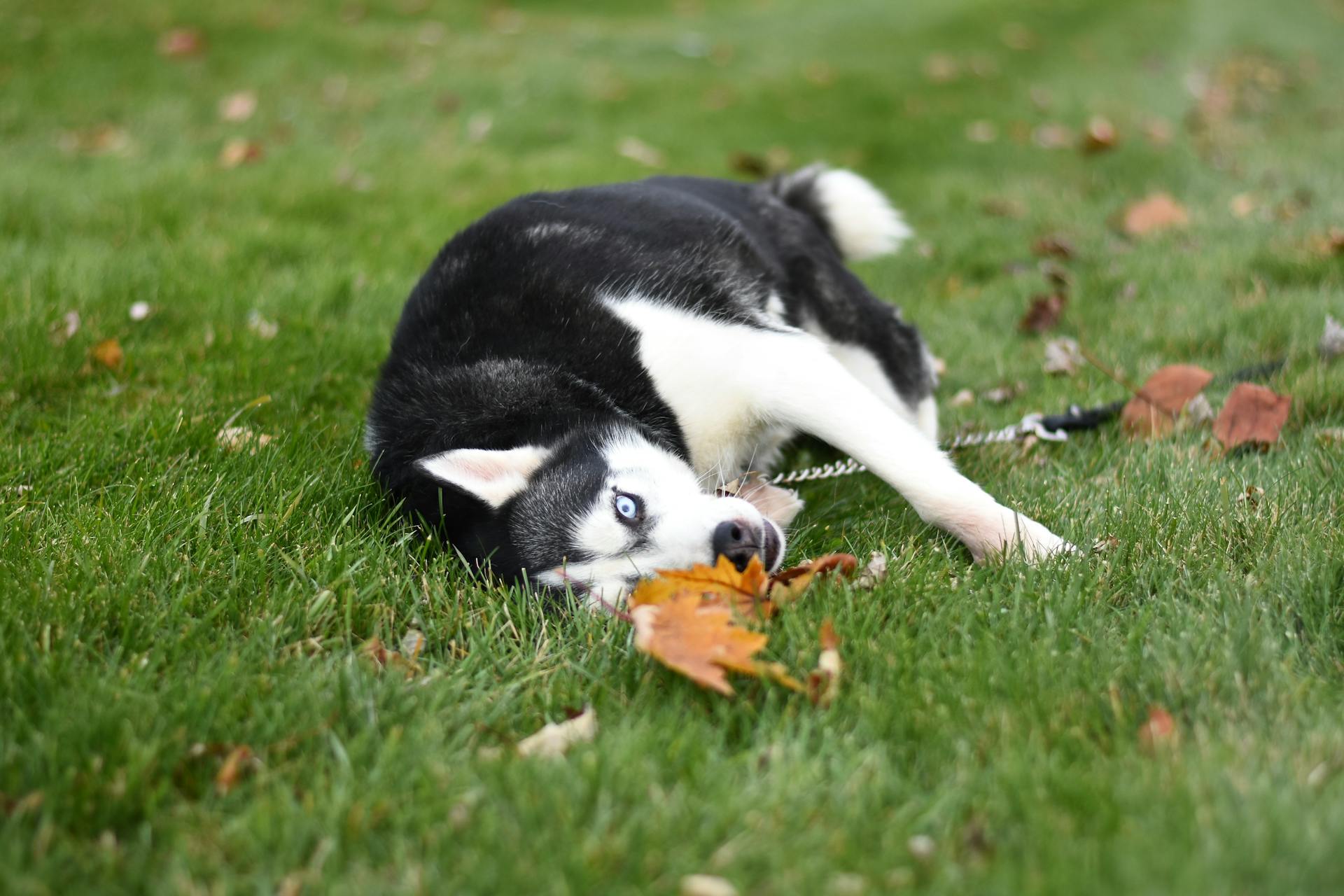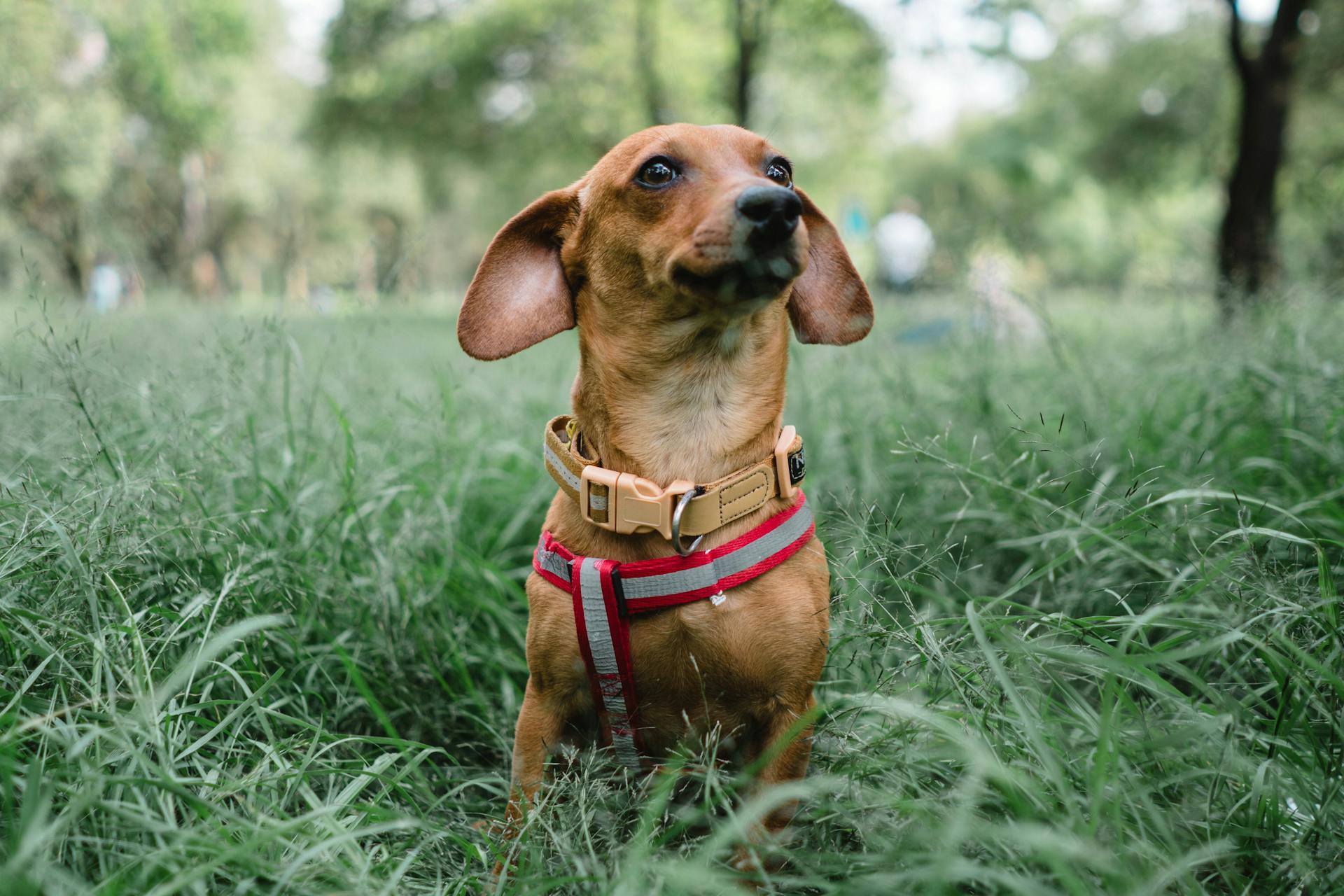
Siberian Huskies are often misunderstood as being aggressive by nature. This common misconception is often rooted in the breed's history as sled dogs, where they were bred to be strong and fiercely independent. In reality, their ancestors were used for hunting and companionship, not just pulling sleds.
Siberian Huskies are a social breed that thrives on interaction with their human family and other dogs. They are naturally inclined to be pack animals, which can sometimes be misinterpreted as aggression.
Research has shown that a Husky's temperament is largely determined by their upbringing and socialization. A well-socialized Husky is less likely to exhibit aggressive behavior, whereas a Husky that is neglected or poorly socialized may develop behavioral problems.
In fact, many experts agree that aggression in Huskies is more often a result of poor training, lack of exercise, and inadequate socialization rather than any inherent trait of the breed.
Husky Temperament and Behavior
Siberian Huskies are known for their friendly and gentle nature, but they can also be alert and outgoing. This breed is highly intelligent and has a strong instinct to work in packs, which can sometimes lead to boredom and behavioral problems if they don't receive enough physical, social, and mental stimulation.
Their ancestors were bred to pull sleds in Siberia, and they have a strong innate drive to run, problem-solve, and be part of a pack. This means they need outlets for their natural behavior, such as running and playing, to prevent problems.
A Siberian Husky's temperament and behavior are highly dependent on how they are trained and cared for. With proper training and exercise, they can be wonderful companions, but without it, they can become destructive and difficult to manage.
Here are some common behavior problems in Siberian Huskies and their solutions:
It's essential to understand that Siberian Huskies are not inherently aggressive, but rather, they can become aggressive due to a lack of proper training and care. By providing them with the right environment and training, you can help prevent behavioral problems and ensure a happy and healthy relationship with your Husky.
See what others are reading: Dog Training for Aggression
Preventing Aggression
Preventing aggression in Siberian Huskies requires early socialization and training. It's essential to start socializing your pup as early as a couple of months old, exposing them to various environments, people, and other animals to help them develop good behavior.
Choosing the right breeder and selecting a puppy based on your lifestyle and ability to provide training and exercise is crucial. If you're not prepared to invest time and effort into training, it's better to wait or choose a different breed.
Providing a variety of chew options, including toys, can help reduce your husky's desire to chew and bite. Training your husky to practice impulse control and preventing them from feeling threatened can also help prevent aggression.
Here are some key steps to prevent aggression in Siberian Huskies:
- Choose a breeder who prioritizes temperament and socialization
- Start socializing your pup early, ideally from 2 months old
- Provide daily exercise and mental stimulation to prevent boredom
- Train your husky using positive reinforcement methods
- Prevent your dog from feeling threatened or resource-guarding
By following these steps and being consistent in your training and socialization efforts, you can help prevent aggression in your Siberian Husky and raise a well-behaved and loving companion.
Aggression Signs and Causes
Signs of aggression in Siberian Huskies are crucial to recognize early on, as they can be a warning sign of more serious behavior issues.
Growling, snarling, baring teeth, stiff body posture, and lunging are common indicators of aggression in these dogs.
Dominant aggression can show itself as young as a couple of months old, with a pup growling when you get too close to its food bowl or try to take a toy off of it.
This behavior, if left unchecked, will only get worse as the dog gets older, and it's highly unlikely that it will "grow out of it" without corrective behavior.
Lack of Socialization
Lack of socialization can be a major contributor to behavioral issues in Siberian Huskies. Insufficient exposure to diverse environments, people, and animals from an early age can lead to fearfulness and aggression.
Puppies need to be socialized extensively to become confident and calm adults. This means introducing them to various situations, people, and animals to help them develop good coping skills.
A lack of socialization can cause Siberian Huskies to become fearful and aggressive towards strangers. This can lead to defensive behavior and even attacks on people or other animals.
Early socialization is key to preventing behavioral issues in Siberian Huskies. It's essential to expose them to new experiences and environments from an early age to help them develop good social skills.
Take a look at this: Are Husky Dogs Good with Cats
Signs of Aggression
Recognizing the warning signs of aggression is crucial for early intervention and behavior modification.
Growling, snarling, baring teeth, stiff body posture, and lunging are common indicators of aggression in dogs.
Dominant aggression can show itself as early as a couple of months old, with puppies growling when their food bowl is approached or when they're trying to protect a toy.
If left uncorrected, this behavior can get worse as the dog gets older and they may try to rule the house.
Predatory aggression can be a problem in working dog breeds like Siberian Huskies and Malamutes, which have a strong prey drive and may view young children or smaller animals as irresistible "prey".
Direct supervision is essential when interacting with these dogs, especially in situations where they may be triggered by their natural reactivity.
Early correction is key to preventing aggression from escalating, and a sharp reprimand and a "no" can often be enough to deter unwanted behavior.
For another approach, see: How Long Do Siberian Huskies Grow
Addressing Aggression
Siberian Huskies are not inherently aggressive, but their behavior can be influenced by various factors, including genetics, environment, and upbringing.
Labeling the entire breed as aggressive oversimplifies their complex nature and disregards individual differences.
Recognizing the warning signs of aggression is crucial for early intervention and behavior modification.
Common indicators of aggression in Siberian Huskies include growling, snarling, baring teeth, stiff body posture, and lunging.
Dominant aggression can show itself as early as a couple of months old, with the pup growling when you get too close to its food bowl or try to take a toy off of it.
If this behavior isn't corrected quickly, it's likely to get worse as the dog gets older and may even try to rule the house.
Predatory aggression is a common issue in working dog breeds, including Siberian Huskies and Malamutes, due to their strong prey drive.
Direct supervision is necessary when introducing your Snow Dog to young children or other smaller animals, as they may view them as prey.
Obedience training by every member of the family is essential, especially those the dog views as ranked beneath them, to correct this natural reactivity.
A sharp reprimand and a "no" is usually sufficient to correct the dog's behavior and teach them that their current behavior is not allowed.
Suggestion: Problems with Husky Dogs
Seeking Professional Help
If you're struggling to manage your Siberian Husky's aggression, it's time to seek professional help. Addressing aggression in Siberian Huskies may necessitate the expertise of certified animal behaviorists or trainers specializing in canine behavior modification.
Professional guidance can help you identify the root causes of your dog's aggression and develop a customized plan to address it. With the right help, you can learn how to manage and alleviate aggressive tendencies.
Certified animal behaviorists and trainers can provide you with tailored intervention strategies to help your Siberian Husky become a well-behaved and loving companion. Their expertise can be a game-changer in helping you overcome aggression issues.
Sources
- https://www.lawofficesofsamuelfishman.com/dangerous-dogs-huskies/
- https://finalizo.com/are-siberian-huskies-aggressive/
- https://www.snowdog.guru/different-types-of-aggression-in-huskies/
- https://alleysrescuedangels.org/learn/siberian-husky-temperment.html
- https://be.chewy.com/behavior-of-your-siberian-husky/
Featured Images: pexels.com


